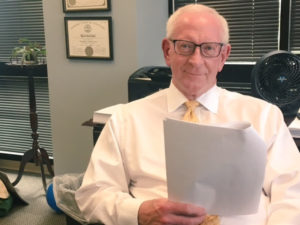 Fraud in Bankruptcy and How It Affects Your Case
Fraud in Bankruptcy and How It Affects Your Case
The Supreme Court recently ruled on a case called Bartenwerfer v. Buckley, which found you can’t include money obtained by fraud in bankruptcy proceedings.
That may sound dense, but we can explain. Here’s what it means and how it might affect your case.
The Story Behind the Case
A couple named David and Kate Bartenwerfer renovated and sold a San Francisco house to Kieran Buckley. After the purchase, Buckley discovered defects with the house. He sued the Bartenwerfers for misleading him and won, which meant the couple needed to pay him a large settlement. In debt and unable to pay, the Bartenwerfers then filed for bankruptcy.
Buckley told the bankruptcy court the settlement they owed him shouldn’t be included in the bankruptcy. After all, the Bartenwerfers committed fraud. In general, if you get money by committing a crime, you aren’t supposed to be able to include it in bankruptcy.
However, Kate Bartenwerfer said she shouldn’t be held responsible because she didn’t know her husband was committing fraud. She claimed she was unaware there were any problems with the house they sold. Because she was innocent, her lawyers argued, she should be able to get rid of her debt.
The Supreme Court disagreed. They had sympathy for Ms. Bartenwerfer, but they all agreed unanimously that she had a responsibility under the law to repay the debt.
 How Is This So Different for Corporations?
How Is This So Different for Corporations?
Stories like this can be frustrating when you think about corporate bankruptcy. After all, big companies and institutions try to get out of bad behavior through bankruptcy all the time. Just look at Purdue Pharma trying to get out of paying back opioid victims or the over 20 Catholic dioceses using bankruptcy for their debt from abuse lawsuits.
Of course, not every company gets away with it. Just this year, Johnson & Johnson tried to file bankruptcy so they wouldn’t have to pay back victims of their talc products (cases we’re a part of), but the court wouldn’t let them.
But there’s no doubt large corporations use bankruptcy to get out of scandals much more often than the rest of us. That doesn’t mean it’s ever right, and it’s certainly not how bankruptcy was designed to work.
How the Fraud in Bankruptcy Ruling Might Impact Your Case
In general, this ruling won’t affect most bankruptcy cases, including yours. It’s a very specific problem. It also might play out differently in Tennessee. Here, the law excludes a woman from being held responsible for her husband’s debt.
But even if this particular case doesn’t overlap with yours, it’s important your bankruptcy attorney understands it. A good bankruptcy lawyer will stay up-t0-date on cases like this, because every single person’s situation is unique.
 You want to make sure you lawyer understands all the specifics about the law, because problems can come up otherwise that cost you a lot of time and money. And you also want someone who gives your case their full attention, so if something needs special care, they don’t miss it.
You want to make sure you lawyer understands all the specifics about the law, because problems can come up otherwise that cost you a lot of time and money. And you also want someone who gives your case their full attention, so if something needs special care, they don’t miss it.
Instead, a lot of firms push people through like an assembly line. This works well for their bottom line, but it puts you at serious risk of having to pay a lot more down the road.
We wrote a report about this called What the Price-Chopping Lawyers Won’t Tell You that helps you know exactly what to look for before you hire an attorney.
Getting Started with Your Bankruptcy Case
Our team gives you our undivided attention. We never charge you extra down the road or hide charges for giving you basic communication.
That’s how we’ve received multiple awards for client satisfaction.
To get started, we offer a free consultation, no strings attached. Just contact us today at 901-327-2100 or fill out the form below to schedule your appointment.
